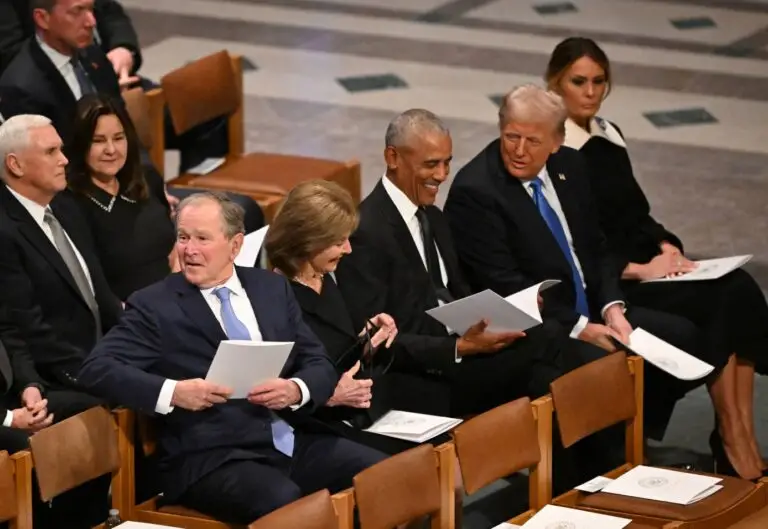In a solemn gathering of reflection and respect, the United States bid farewell to its 39th president, Jimmy Carter, in a service held Thursday at Washington’s National Cathedral. Known for his humility, deep compassion, and unwavering commitment to justice, Carter passed away on December 29 at the age of 100, leaving behind a legacy that transcended politics.
The service brought together former presidents, dignitaries, and citizens from across the nation. Among the attendees were all five living U.S. presidents, a rare and symbolic convergence that underscored Carter’s ability to bridge divides even in death. The occasion served as a moment of unity, offering a respite from the turbulent political climate.
President Joe Biden, who shared a decades-long friendship with Carter, delivered an emotional tribute. He praised Carter’s profound dedication to the common good, emphasizing his belief in leading with moral clarity. “Jimmy Carter was a man who saw dignity in every human being and acted as if every choice he made mattered—for America and for the world,” Biden said, reflecting on Carter’s legacy of service.
Carter’s impact extended beyond his time in the Oval Office, where he served from 1977 to 1981. His efforts to broker peace between Egypt and Israel, champion environmental conservation, and advocate for human rights remain defining aspects of his presidency. Yet it was his post-presidential life, marked by tireless work with Habitat for Humanity and global health initiatives, that solidified his reputation as a moral compass for the nation.
Family members shared intimate recollections of Carter’s life in Plains, Georgia, where his connection to the land and community shaped his values. His grandson, Jason Carter, spoke of his grandfather’s “quiet strength and unshakable belief in the power of kindness.”
The ceremony was punctuated by unique moments of reconciliation, including the symbolic presence of former President Donald Trump, who, despite his controversial political career, stood alongside his predecessors in a rare moment of bipartisan respect. Brief interactions between figures often divided by political allegiances reflected the somber nature of the day.
The service also featured posthumous tributes from Carter’s former vice president, Walter Mondale, and former rival-turned-friend Gerald Ford, whose remarks were read by family members. Their words painted a portrait of a man driven not by ambition, but by principle.
Carter’s coffin, draped in the American flag, was borne into the cathedral by a military honor guard, reflecting the deep respect he commanded as a leader and citizen. Thousands of Americans lined the streets and paid their respects during the public mourning period, a testament to the widespread admiration he earned throughout his life.
As the nation moves forward, Carter’s legacy serves as a reminder of the power of empathy, humility, and courage in leadership. His contributions to peace, democracy, and human rights will resonate for generations to come.






